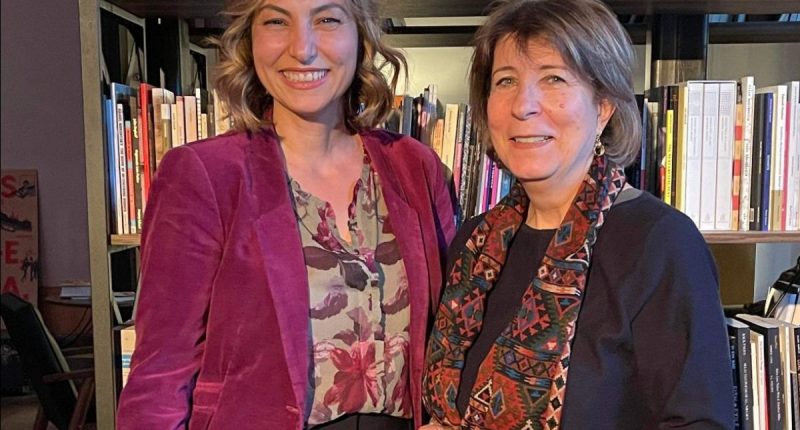LOS ANGELES – Salpi Ghazarian is stepping down as director of the USC Dornsife Institute of Armenian Studies after serving in the role since 2014. She will remain at the Institute and will work on special initiatives.
Dr. Shushan Karapetian, formerly deputy director of the Institute, is the new director as of January 2023.
“Towards the end of 2018, when I invited Shushan Karapetian to the Institute as deputy director, I did so hoping that she would eventually take over as director, leading the Institute into a new era. I am very happy that this is now happening,” said Ghazarian.
In her eight-plus years as director, Ghazarian has re-imagined how to bring Armenian Studies to the world by providing new platforms for academic engagement, producing world-class programming, increasing accessibility and bridging the gap between the diaspora and the Republic of Armenia. “At a time when the Armenian world is rocked by multiple existential crises, I wanted to create platforms where scholars would also become public intellectuals, where their scholarship would also become beneficial and relevant to current challenges,” she said.
The crises highlighted the need for much more rigorous research in all areas of Armenian Studies, not least in genocide studies, and certainly, in history, political science as well as sociology and anthropology. “The Institute focused its work on fields of knowledge that are essential for any society, and especially the new countries of the Caucasus, to move toward inclusive, responsive, secure, and just societies,” said Ghazarian, who focused the Institute’s resources on young scholars. In the last 6 years the Institute has allocated more than $300,000 towards research.
During the April 2016 four-day war along the Nagorno Karabakh line of contact, the Institute was the first point of contact for domestic and international media who were tasked with explaining the conflict. Ghazarian identified a knowledge gap and responded with a robust web portal Focus of Karabakh – with maps, timelines, government documents – all providing much needed information to both the media and the layperson.
Ghazarian led the Institute team to create its flagship event “Innovate Armenia,” held four times since 2015. In this “festival of ideas” format, scholars from around the world came to present their research and its significance to the Diaspora and Armenia, and to global and regional studies. Equally important, the Innovate Armenia events served to introduce the best of Armenia’s civic and educational organizations to the Diaspora.
Her leadership at the USC Institute of Armenian Studies stretched the conventional boundaries of research and development within academia. Since 2014, the Institute has created opportunities for students and researchers to ask new questions, to conduct and share research, through Institute-hosted conferences, student retreats, podcasts, web series and oral history initiatives.
“We started with a blank slate and, as a team, focused on the creation and transmission of knowledge as well as the translation of knowledge for public benefit,” Ghazarian said. “What a privilege this has been. Now, under Dr. Shushan Karapetian’s leadership, there will be both continuity and change – always for public and student benefit. It’s all very exciting.”










